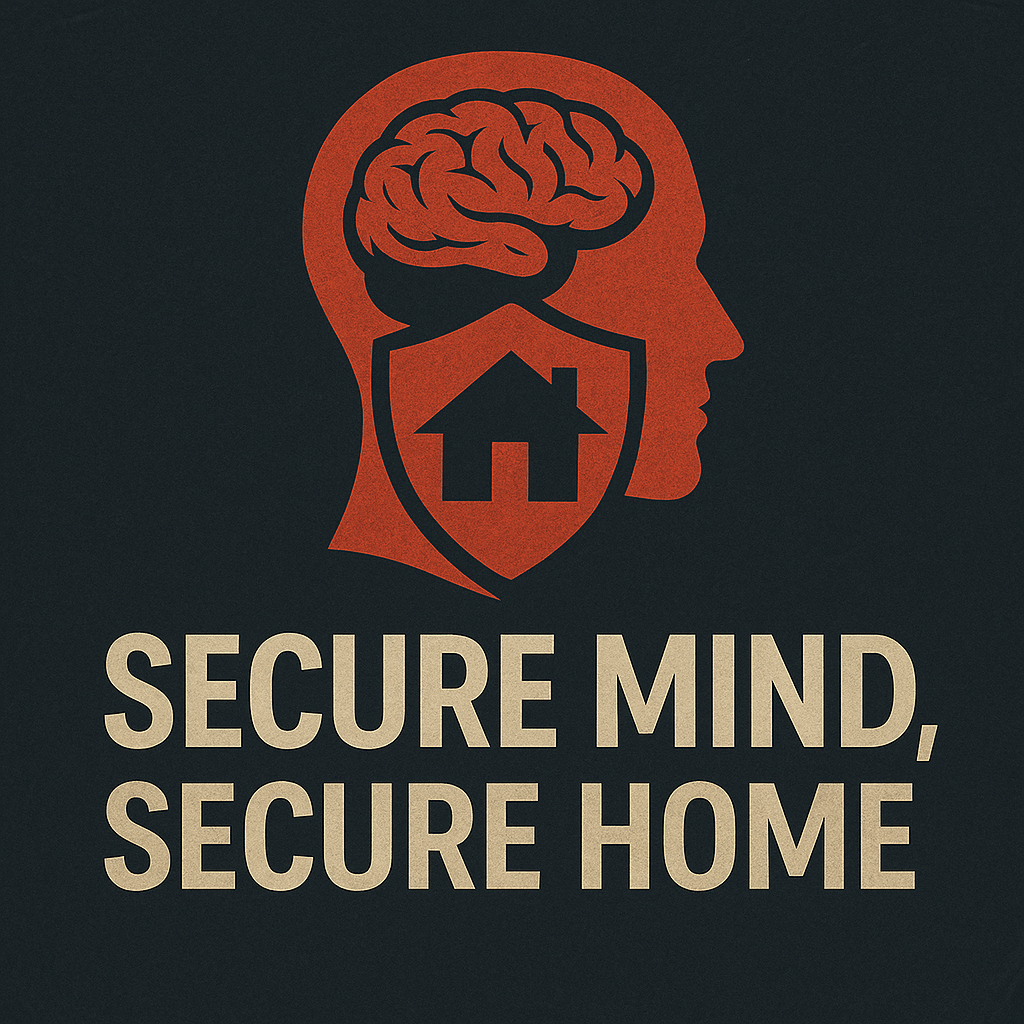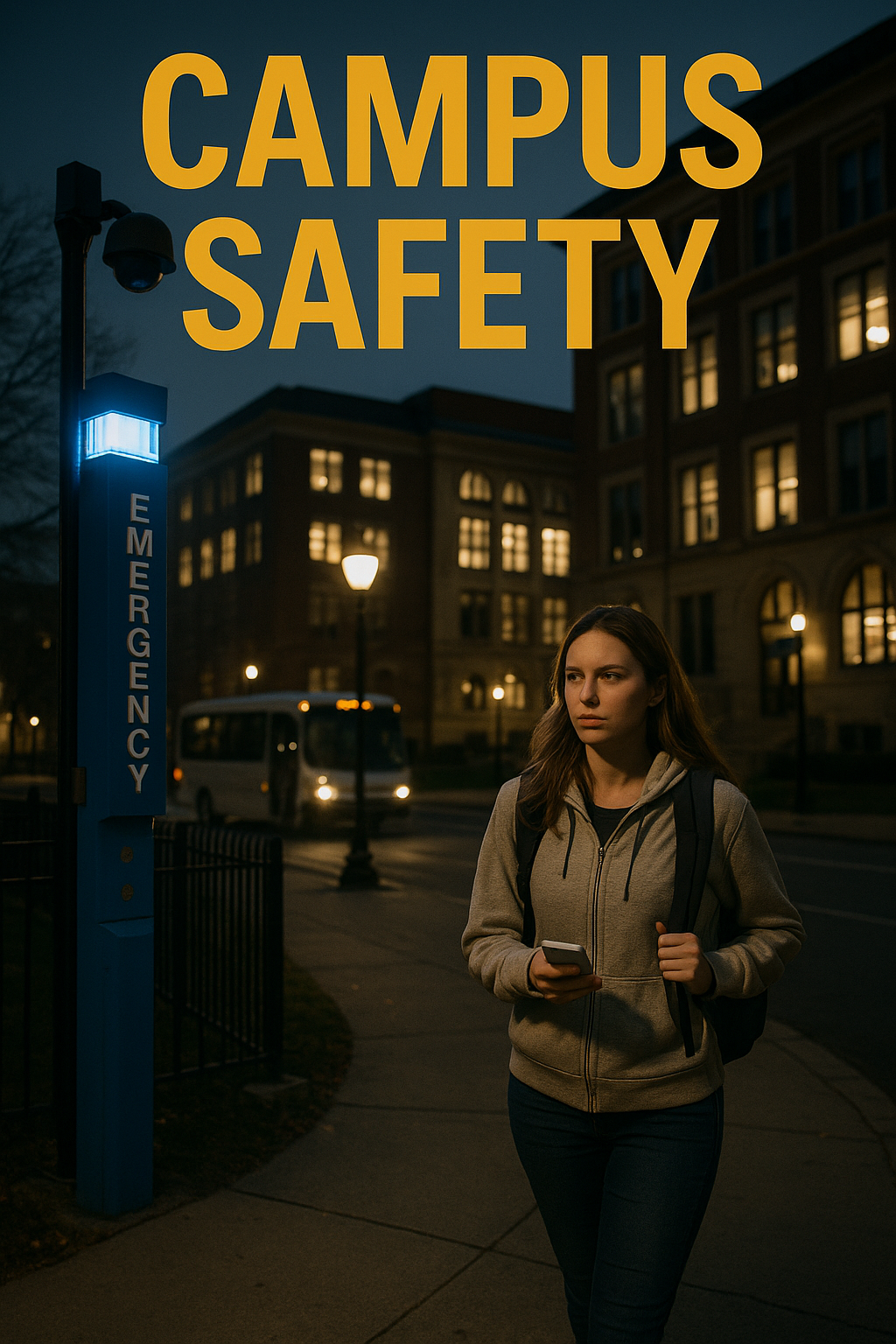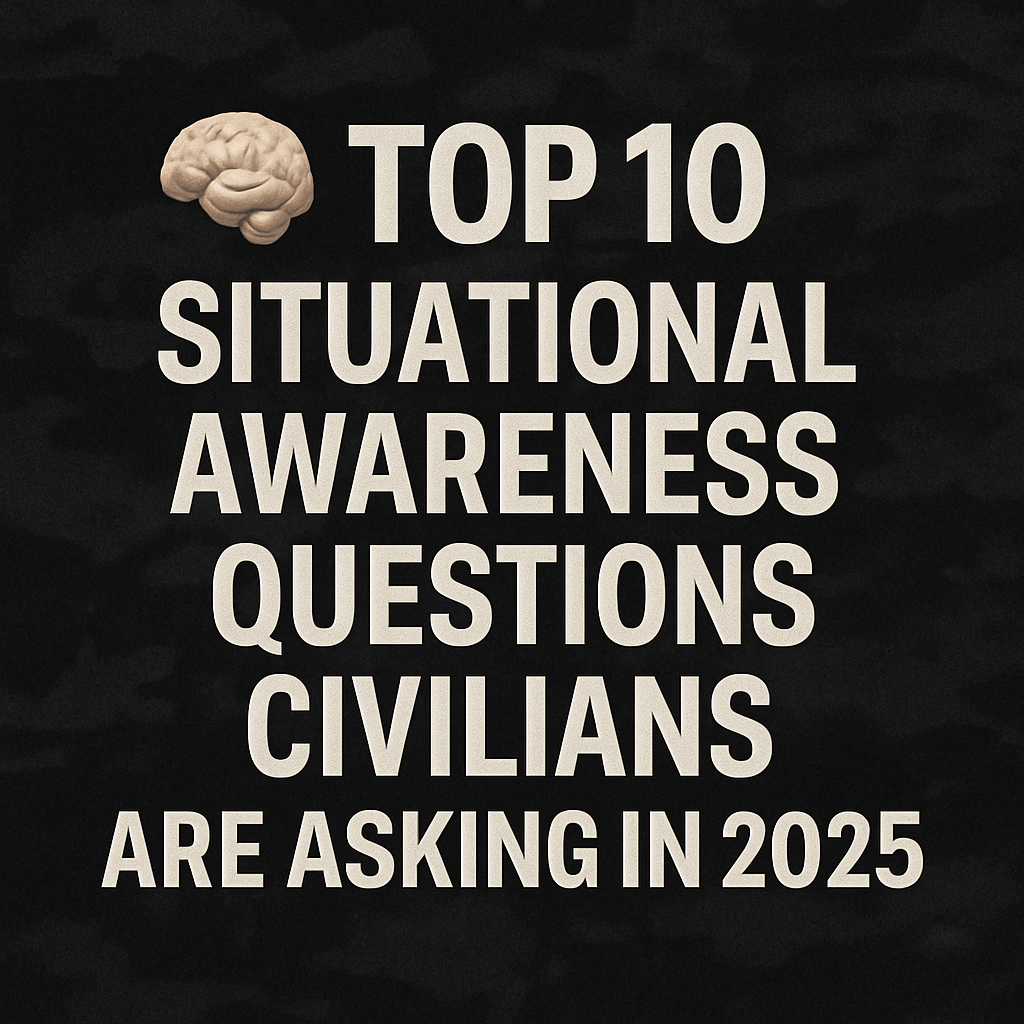Episode Transcript
[00:00:00] Speaker A: Okay, let's unpack this. Here's something that might surprise you.
Most burglaries, they don't happen under the COVID of darkness, right?
[00:00:08] Speaker B: Yeah, that's a common misconception.
[00:00:10] Speaker A: The St. Petersburg Police Department, actually, they report that the majority of home and apartment break ins happen during the day.
[00:00:17] Speaker B: When people are out at work, school, running errands. Exactly.
[00:00:22] Speaker A: And that's exactly what we're diving deep into today, how you can make your home work. Well, a tougher target. We've looked at articles, some YouTube stuff, even Reddit threads.
[00:00:31] Speaker B: Lots of good stuff out there.
[00:00:33] Speaker A: Our mission really is simple. Just equip you with actionable, no nonsense strategies, things you can actually do to level up your home security.
[00:00:41] Speaker B: That's right, because home security, it can feel like this huge rabbit hole. You know, all the gadgets and gizmos, totally overwhelming sometimes. Yeah. So what we're doing here is trying to distill the really effective measures, the ones that give you the most bang for your buck, I guess. And the biggest peace of mind. Doesn't matter if you're super techy or prefer, you know, simpler stuff or if you're in a big house or a small apartment.
[00:01:06] Speaker A: It applies across the board.
[00:01:07] Speaker B: Exactly.
[00:01:08] Speaker A: Yeah.
[00:01:08] Speaker B: We're looking at building layers of security from, like, the outside looking in, the visible stuff down to the nitty gritty of door locks, window hardware. Even our own habits play a big part.
[00:01:23] Speaker A: Absolutely. Our sources really do paint that picture security as layers, like building a shield piece by piece. So let's start with that outermost layer, the edge of your property, the perimeter. Okay, what are some, like, fundamental things we can do right there?
[00:01:36] Speaker B: Well, if you think about that core idea, making your home less appealing, the perimeter is your first shot.
[00:01:42] Speaker A: Makes sense.
[00:01:43] Speaker B: Think about it. A fence, locked gates, that sends a pretty clear signal, right? Several sources point that out. It says, hey, I care about security here, okay?
[00:01:50] Speaker A: Obvious physical barriers.
[00:01:51] Speaker B: And even your landscaping. Yeah, it plays a, Well, a surprisingly big role.
[00:01:56] Speaker A: How so? Like pretty flowers.
[00:01:57] Speaker B: Well, maybe not the flowers themselves, but one source, the best home security tips, really emphasizes keeping clear sight lines.
[00:02:05] Speaker A: Ah, so trimming bushes and stuff.
[00:02:07] Speaker B: Exactly. Overgrown bushes, big shrubs right by the house. They can be perfect hiding spots for someone casing the place or trying to get in unseen.
[00:02:15] Speaker A: Right? Right. You're denying them cover, Denying that element of surprise.
[00:02:19] Speaker B: Precisely.
[00:02:20] Speaker A: Okay, so visibility is key. And when we talk about seeing things, lighting, that seems like a really powerful tool here.
[00:02:28] Speaker B: It truly is one piece. Home security lighting calls it the first line of defense. Straight up.
[00:02:36] Speaker A: Wow.
[00:02:36] Speaker B: First line and get this. There was a study in New York City. They found a 39% drop in nighttime crime in some public housing areas just by improving the lighting.
[00:02:46] Speaker A: 39% just from better lights. That's huge.
[00:02:50] Speaker B: And staysafe.org breaks down the types you can use. Floodlights for big areas, spotlights for specific.
[00:02:56] Speaker A: Points like corners or doorways.
[00:02:58] Speaker B: Yeah, exactly. Pathway lights for, you know, general visibility. And motion detection lights. Those are great for startling someone and letting you know something's moving out there.
[00:03:06] Speaker A: Right, the surprise factor again.
[00:03:08] Speaker B: And another source, night owl lighting. Points out you can use landscape lighting strategically too. Not just to look nice, but to kill shadows, highlight paths someone might take.
[00:03:18] Speaker A: So it's a double win. Looks good. Add security. Okay, beyond lighting and trimming bushes, are there any more, let's say, natural deterrents, things we can plant or put down?
[00:03:31] Speaker B: Oh, yeah, definitely. Some lower tech, but pretty effective ideas came up. Like thorny bushes right under windows.
[00:03:38] Speaker A: Ouch. Yeah, I wouldn't want to climb through that.
[00:03:40] Speaker B: Nobody does. That came from the home security lighting piece too. And pea gravel. Putting that under windows or along paths.
[00:03:46] Speaker A: Why pea gravel?
[00:03:47] Speaker B: The crunch. It makes a really distinct noise if someone walks on it. Hard to sneak around. Gives you an early warning, you know?
[00:03:53] Speaker A: Yeah.
[00:03:53] Speaker B: An audible cue.
[00:03:54] Speaker A: Okay, so making the perimeter less inviting visually, audibly, even physically, with the thorns. Got it. Let's move inwards then to the actual entry points. Doors and windows. Let's start with doors. What's the absolute must do? Baseline.
[00:04:07] Speaker B: Okay, doors, everything. We looked at the number one absolute non negotiable deadbolts. Dead bolts. Not just the knob lock. No deadbolts on all exterior doors. And using them, a Locksmith quoted in 12 easy ways basically couldn't believe how many homes still just rely on the spring latch in the doorknob.
[00:04:28] Speaker A: Really? Still?
[00:04:29] Speaker B: Yeah, he said the old credit card trick works on something like eight out of ten doors that don't have a deadbolt.
[00:04:34] Speaker A: Eight out of ten. Wow. Okay, that's. That's alarming. Deadbolts are a must then. So what's next after the deadbolt?
[00:04:42] Speaker B: Well, if you've just moved into a place a new to you house, rekeying the locks, absolutely critical.
[00:04:47] Speaker A: Why is that so important?
[00:04:48] Speaker B: You just have no idea who the previous owners gave keys to, Right? Contractors, dog walkers, friends, Uncle Joe. Could be anyone. Rekeying ensures only you have the key.
[00:04:58] Speaker A: Okay, good. Point unknown. Key holders are a risk.
[00:05:00] Speaker B: And a tip from that same source.
[00:05:02] Speaker A: Yeah.
[00:05:03] Speaker B: Take the locks to the locksmith strap. It's usually cheaper than having Them come out to you.
[00:05:06] Speaker A: Smart. Save a few bucks. Okay, Reking. And while we're on keys, the spare key dilemma.
[00:05:12] Speaker B: Ah yes, the classic under the mat situation.
[00:05:15] Speaker A: Or the fake rock.
[00:05:16] Speaker B: Exactly. And guess where burglars look first.
[00:05:18] Speaker A: Under the mat and in the fake rock.
[00:05:20] Speaker B: You got it. 12 easy ways points this out. Look, having a spare isn't inherently bad for emergencies. But you gotta be smarter about hiding it.
[00:05:32] Speaker A: So where should you hide it?
[00:05:34] Speaker B: Well, keeping one securely in your car is often suggested. Assuming your car's locked, obviously. If you must hide one outside, think way, way outside the box. Not in anything that looks like a hide a key spot. Someone apparently found one in a fake solar light. Not so hidden anymore, huh?
[00:05:50] Speaker A: Okay, so get creative. Or just don't hide one outside at all.
[00:05:53] Speaker B: Maybe that's probably safest. And retrieve it discreetly if you do need it. Don't make a show of it.
[00:05:57] Speaker A: Yeah, ja. Ditch the obvious spots. Now what about the locks themselves? The quality? Are all deadbolts created equal?
[00:06:03] Speaker B: Oh, definitely not. That locksmith we mentioned from Pew Pew Tactical. He had some pretty direct advice. Yeah, he sees a lot of older Kwikset locks, unless it's their newer smart key type and says they can often be picked super fast. Like minutes.
[00:06:17] Speaker A: Minutes. Seriously?
[00:06:18] Speaker B: Yeah. So his advice is blunt. Replace those older, weaker locks.
[00:06:21] Speaker A: Schlage is generally seen as a solid step up.
[00:06:24] Speaker B: Okay, Schlage is better. But if you want really serious pick resistance, you're looking at brands like Schlage, Primus, Aberra, Abloy or Lox with what's called an MX Keyway.
[00:06:34] Speaker A: MX Keyway?
[00:06:35] Speaker B: Yeah, it's a specific design. Much tougher to pick. They cost more. Sure, but you're paying for significantly better security, right?
[00:06:42] Speaker A: An investment. Okay, so good quality deadbolts. Rekeyed if needed. Smart spare key plan. And maybe upgrading if you've got older easily picked locks. What else can we do to really beef up the door itself?
[00:06:56] Speaker B: Reinforcing the door and the frame. That's huge. Several courses emphasize this. Upgrade to a grade one deadbolt. That's the top residential security rating at grade one.
[00:07:05] Speaker A: Got it.
[00:07:06] Speaker B: And replace that little metal piece on the frame where the bolt goes in the strike plate.
[00:07:10] Speaker A: Yeah, those always look kind of flimsy.
[00:07:11] Speaker B: They are. Standard ones are often just screwed into the door. Trim the soft wood, easy to kick in. You want a heavy duty 4 screw strike box. And use long screws, like 3 inches long.
[00:07:21] Speaker A: 3 inches. Why so long?
[00:07:22] Speaker B: Because they need to go through the flimsy trim and deep into the solid wood stud. Of the house frame. That's what gives it strength against kicking.
[00:07:30] Speaker A: Ah, okay. Anchoring it to the actual structure.
[00:07:33] Speaker B: Exactly. And one source specifically suggests security strikes. Basically bigger, beefier plates with more screw holes designed specifically for that deep anchoring.
[00:07:43] Speaker A: Okay.
[00:07:43] Speaker B: And don't forget the hinges. Same logic applies. Swap out the short hinge screws for those long 3 inch ones. Stops the door being kicked in on the hinge side.
[00:07:52] Speaker A: Wow. Okay, so those long screws seem like a really simple cheap upgrade that makes a massive difference.
[00:07:58] Speaker B: Huge difference. Seriously underrated.
[00:08:00] Speaker A: What about when you're actually home? Any extra layers for when you're inside?
[00:08:04] Speaker B: Yeah, 12 easy ways. Mentions safety latches and night latches. Safety latches?
You know, the chain or the solid bar type. You flip from the inside, they can add serious resistance, like 800 pounds. Some of them great for in your home. Night latches are similar. Extra locking from inside. Some key operated from outside too.
[00:08:23] Speaker A: Okay.
[00:08:23] Speaker B: And then there's the door bar. Kind of old school.
[00:08:26] Speaker A: Maybe like jamming a chair under the knob.
[00:08:28] Speaker B: Pretty much the same idea. What is under the knob or across the bottom? If someone's trying to force the door, it buys you precious time. Seconds matter.
[00:08:36] Speaker A: Yeah, I guess even those cartoony things have a real purpose. Buying time is critical. What about the actual door material? Solid core metal. Does that matter much?
[00:08:45] Speaker B: Oh, absolutely. Solid core or metal doors are strongly recommended for exterior doors. Much harder to break through than hollow ones.
[00:08:52] Speaker A: Right.
[00:08:53] Speaker B: If you have mortise locks, the one set into the door edge, you generally want the door to be at least 44 millimeters thick. Thinner doors might need a rim deadlock which mounts on the surface.
[00:09:03] Speaker A: Okay.
[00:09:04] Speaker B: And look for standards like BS3621 or BSEN12209. Those are security ratings, mainly ukiro, but they indicate a tested level of lock security.
[00:09:14] Speaker A: Good to know.
[00:09:14] Speaker B: Oh, and if your door opens outwards, hinge bolts prevent someone just popping the hinge pins out.
[00:09:19] Speaker A: Okay. Doors definitely need a multi pronged approach.
Wow. Now let's talk sliding glass doors. They always feel like a weak spot.
[00:09:27] Speaker B: Yeah, you're right to feel that way. They often use simple latches, not real locks. So they can be forced open or sometimes even lifted right off the track.
[00:09:35] Speaker A: Lifted off? How do you stop that?
[00:09:38] Speaker B: Well, first, for stopping them sliding open, a super simple fix. Put a wooden dowel like a cut broomstick in the bottom track physical block.
[00:09:46] Speaker A: That easy?
[00:09:47] Speaker B: Yep. Or buy a charlie bar or a track blocker. You screw in. Same principle for the lifting problem. Keep the rollers maintained so the door doesn't jam makes it harder to lift. And you can add anti lift devices, security pins or screws in the upper track. Stops it being raised.
[00:10:04] Speaker A: Simple but effective for sliders. Okay, moving on to windows then. Key concerns there.
[00:10:09] Speaker B: Well, first off, it sounds obvious, but a surprising number of break ins happen through unlocked windows.
[00:10:13] Speaker A: Seriously? People just leave them unlocked?
[00:10:15] Speaker B: Apparently so. Especially ground floor or easily reachable upper floor windows. So step one, lock your windows always.
[00:10:22] Speaker A: Okay, locking is step zero. What else?
[00:10:24] Speaker B: Adding secondary locks. Clamping locks on the frame. For horizontal sliders. Same trick as the door. Wooden dowel on the track. For vertical sliders, you can use pins that go through both frames, locking them together. Even just devices that limit how far a window can open. Like 6 inches max can deter someone.
[00:10:43] Speaker A: So they can't climb in.
[00:10:44] Speaker B: Right. And again for horizontal sliders, anti lift screws in the top track. Same reason as the doors.
[00:10:51] Speaker A: Okay, so again adding physical layers beyond the basic latch. What about like early warning for windows if someone's messing with them.
[00:10:59] Speaker B: Yeah. Window vibration sensors.
[00:11:01] Speaker A: Yeah.
[00:11:01] Speaker B: Mastering Home Security mentions these small gadgets you stick on the glass and they detect vibrations or shocks. Like someone trying to pry the window open or breaking the glass, they set off an alarm, often audible. Gives you that early warning.
[00:11:13] Speaker A: Early warning is always good. Okay, we've hit physical security hard. Let's shift to tech. The role technology plays. Now, where do we start? There. Alarms.
[00:11:21] Speaker B: Alarm systems. Yeah, they're really a cornerstone, a crucial layer for detection and deterrence.
[00:11:27] Speaker A: What do they typically include?
[00:11:28] Speaker B: Basic systems usually have door and window sensors, but you can add motion detectors, class break sensors.
[00:11:34] Speaker A: Listening for the sound.
[00:11:35] Speaker B: Exactly. Even environmental sensors. Smoke, flood, temperature extremes. The real power now is integration, meaning connecting the alarm to cameras, smart home devices, creating this whole network. But critically, you need a plan for when the alarm goes off.
[00:11:52] Speaker A: Right. What do you actually do?
[00:11:54] Speaker B: Yeah, where do you go? Safe room. How do you call for help? Do you have any self defense plan? Thinking that through before it happens is vital.
[00:12:02] Speaker A: Absolutely. Integration and a plan. Okay, what about cameras? Surveillance.
So common now, are they worth it?
[00:12:10] Speaker B: The sources strongly suggest yes. They have a big deterrent effect. Just being visible.
[00:12:15] Speaker A: People see them and maybe move on.
[00:12:17] Speaker B: That's the idea. Placement is key, obviously. Cover entry points, driveway, vulnerable spots outside, maybe key areas inside too, depending on your preference.
[00:12:25] Speaker A: And you can watch them remotely now?
[00:12:27] Speaker B: Oh yeah. Most systems let you check in on your phone or computer. Super convenient. But and this is important, you need to secure the camera system itself. So strong passwords, keep the software updated. You don't want someone hacking your Security feed.
[00:12:40] Speaker A: Right. Securing the security system. Good point.
[00:12:43] Speaker B: And signs. Putting up video surveillance signs adds another layer of deterrence.
[00:12:47] Speaker A: Okay, what about smart locks? They seem really popular. Are they a big security boost?
[00:12:51] Speaker B: They offer a lot of benefits. Yeah, yeah. Remote locking and unlocking is huge. Forgot to lock up. Do it from your phone. Need to let someone in. You can do that too.
[00:12:59] Speaker A: Temporary access.
[00:13:00] Speaker B: Exactly. Temporary digital keys for guests or cleaners. No physical keys floating around. They often log who comes and goes, integrate with other smart stuff. And no keyhole to pick.
[00:13:12] Speaker A: Lots of convenience and potential security gains there. But what about the real world? Any horror stories or great experiences? You mentioned Reddit earlier.
[00:13:21] Speaker B: Oh yeah. Reddit provided some gold. Really valuable firsthand stuff. One person had a nightmare with Yuffie.
[00:13:27] Speaker A: Oh. Happened?
[00:13:29] Speaker B: Video freezing. Huge delays on alerts. Tons of false alarms. Like wind setting off motion detectors constantly. And they felt the sensitivity settings weren't customizable enough. Basically more annoying than useful.
[00:13:42] Speaker A: Yikes. Okay, any good experiences?
[00:13:45] Speaker B: Yeah, someone else loved their ring system, especially how it worked with Alexa. And the little chime sound whenever a sensor was tripped. Simple but effective feedback.
[00:13:54] Speaker A: Okay, so experiences vary wildly.
[00:13:56] Speaker B: Totally. And there was a really concerning one about Vivint. Allegations of forged documents to set up service. High pressure tactics for good reviews. Raises flags about business practices for sure.
[00:14:09] Speaker A: Wow. So do your homework on the company, not just the tech.
[00:14:12] Speaker B: Absolutely. User reviews are critical. And speaking of tech issues, Reddit also brought up WI fi jammers.
[00:14:19] Speaker A: Oh, right. That sounds bad.
[00:14:21] Speaker B: It is. Someone reported a string of break ins in their area where it seemed like jammers were used to knock out wireless security systems before entry.
[00:14:28] Speaker A: So they just block the signal.
[00:14:30] Speaker B: That's the idea. It definitely highlights a potential vulnerability in relying only on WI fi systems with cellular backup or other ways to communicate. Might be more resilient. Something to consider.
[00:14:40] Speaker A: Definitely something to think about. Okay, we've done physical barriers, we've done tech. What about us, our behavior and our community? How does that fit in?
[00:14:48] Speaker B: Hugely important and often overlooked. One source just said, keep your business private.
[00:14:53] Speaker A: Meaning?
[00:14:54] Speaker B: In today's world, a lot of it is about social media. Don't blast announcements about your amazing new TV or post post vacation pics while you're still away. Wait till you're back.
[00:15:04] Speaker A: Right. Don't advertise an empty house or valuable goods.
[00:15:07] Speaker B: Exactly. And even your trash. Break down those big boxes from electronics or whatever. Don't leave them by the curb like an advertisement.
[00:15:15] Speaker A: Simple but smart. Okay, what about neighbors?
[00:15:19] Speaker B: Can they help immensely? Get to know your neighbors. Several sources stress this a tight Knit community is a powerful deterrent.
[00:15:26] Speaker A: How so?
[00:15:27] Speaker B: People who know each other are way more likely to spot something unusual, someone who doesn't belong, and actually report it.
[00:15:33] Speaker A: Makes sense. Eyes on the street.
[00:15:35] Speaker B: Exactly. And neighborhood watch programs formalize that. Just community members being extra eyes and ears, reporting to the police, even just being a good neighbor.
[00:15:43] Speaker A: Like watching their place when they're away.
[00:15:45] Speaker B: Yeah. Collecting mail, watering plants, just keeping an eye out. It builds trust and extends that security bubble beyond just your own walls.
[00:15:55] Speaker A: It really does seem like community can be a powerful security layer. Okay, we focus mostly on prevention. But what if, worst case scenario, someone does try to get in while you're there?
Should we think about personal preparedness?
[00:16:10] Speaker B: It's wise to. Yeah. While prevention is the main goal of this deep dive, personal safety is part of the picture. Ultimate home security tips mentions having a family defense plan.
[00:16:21] Speaker A: What does that involve?
[00:16:22] Speaker B: It could mean non lethal options like pepper spray or stun guns for those comfortable and properly trained. Maybe firearms. Knowing where safe spots or rooms are in your house. Having escape plans.
[00:16:34] Speaker A: Instant and calm, I imagine.
[00:16:35] Speaker B: Mental preparedness. Yeah. Trying to stay calm under extreme stress. Important things to consider, even if you hope you never need them.
[00:16:42] Speaker A: Sobering, but important. Okay, what about apartment dwellers? Security looks different when you rent. Right? Can't always drill holes or change locks easily.
[00:16:49] Speaker B: Right. Different constraints. Best apartment security systems focuses on exactly that. Low impact, portable systems. Simple, safe, gets mentioned a lot. Easy DIY setup often. Peel and stick sensors. Affordable monitoring, no long contracts. Good for renters. ADT self setup. Cove ring alarm also come up.
[00:17:09] Speaker A: What's the key thing they look for in apartment systems?
[00:17:11] Speaker B: Ease of install. Definitely portability. You want to take it with you when you move.
[00:17:15] Speaker A: Yeah.
[00:17:15] Speaker B: And no permanent damage to the property.
[00:17:17] Speaker A: Peel and stick sensors are ideal then.
[00:17:19] Speaker B: Often. Yeah. Landlords are usually okay with systems as long as you're not making major alterations.
[00:17:24] Speaker A: Okay. What about cameras in apartments? Any specific issues there? Like privacy?
[00:17:29] Speaker B: Yes, that's a big one. Especially in shared buildings. You have a right to security in your own space. But pointing cameras out your window into a neighbor's apartment or covering shared hallways without permission, that can get legally tricky.
[00:17:42] Speaker A: So be mindful of neighbors privacy.
[00:17:44] Speaker B: Absolutely. Maybe stick to sensors inside your unit or have a clear conversation with neighbors if you want cameras covering any shared view. Keep things friendly.
[00:17:52] Speaker A: Good advice. Okay, last area. Are there things we do maybe without realizing that actually attract burglars? Red flags?
[00:17:59] Speaker B: Oh, definitely. Burglars. Look for easy targets. Signs of neglect or absence.
[00:18:03] Speaker A: Like what specifically?
[00:18:05] Speaker B: Trash cans left out for days after pickup. Especially if you're traveling, piled up mail or packages on the porch, Overgrain lawn, messy shrubs, broken fences, just general disrepair.
[00:18:15] Speaker A: Basically signs nobody's home or nobody cares.
[00:18:18] Speaker B: Exactly. And again, posting on social media that you're away. Plus a stark statistic. Homes with no visible security features. Reportedly three times more likely to be targeted.
[00:18:29] Speaker A: No. So even just looking secure helps?
[00:18:31] Speaker B: It absolutely does. Deterrence is huge.
[00:18:33] Speaker A: Okay, we have covered a ton of ground from reinforcing doors, tech behavior. Let's try to boil it down. What are the absolute key takeaways? The most impactful, easy things people can do.
[00:18:45] Speaker B: Right. The essentials? If you do nothing else, make sure every outside door has a quality deadbolt and use it always.
[00:18:52] Speaker A: Always lock up.
[00:18:53] Speaker B: If you just moved, rekey those locks immediately. Ditch the obvious spare key hiding spots. Or better yet, don't hide one outside at all.
[00:19:01] Speaker A: Get creative. Or keep it inside.
[00:19:03] Speaker B: Reinforce those door frames. Longer screws in the strike plate and hinges. Do cheap, easy, massive impact 3 inch screws. Yep. Lock your windows always and maybe add secondary lofts or dowels. Be smart about social media sharing and honestly, get to know your neighbors. Community watchfulness is powerful.
[00:19:22] Speaker A: Those seem like really solid, actionable steps anyone can take.
[00:19:26] Speaker B: Yeah.
[00:19:27] Speaker A: Okay. So as you're thinking about all these layers, we've talked through perimeter, doors, windows, tech behavior.
Here's something to mull over.
[00:19:36] Speaker B: Yeah.
[00:19:37] Speaker A: What's one simple, concrete change you can commit to making today, right now? Something that will genuinely boost your peace of mind about your home security. Maybe it's finally ordering those longer screws or just checking that basement window lock you always forget. Or having that chat with your neighbor about watching each other's places.
[00:19:53] Speaker B: Yeah, just pick one thing, whatever it.
[00:19:54] Speaker A: Is, just taking that first small step that can often make all the difference in feeling safer and actually being safer.




